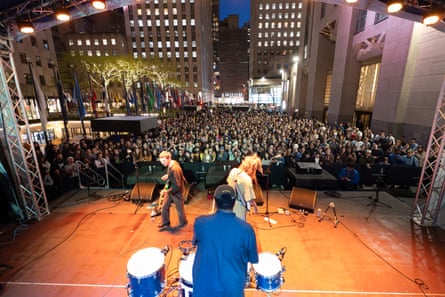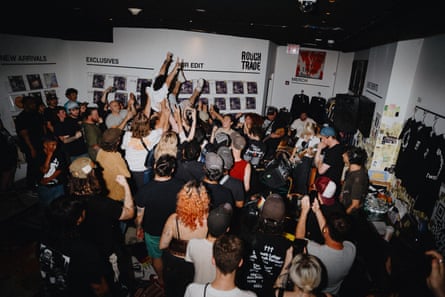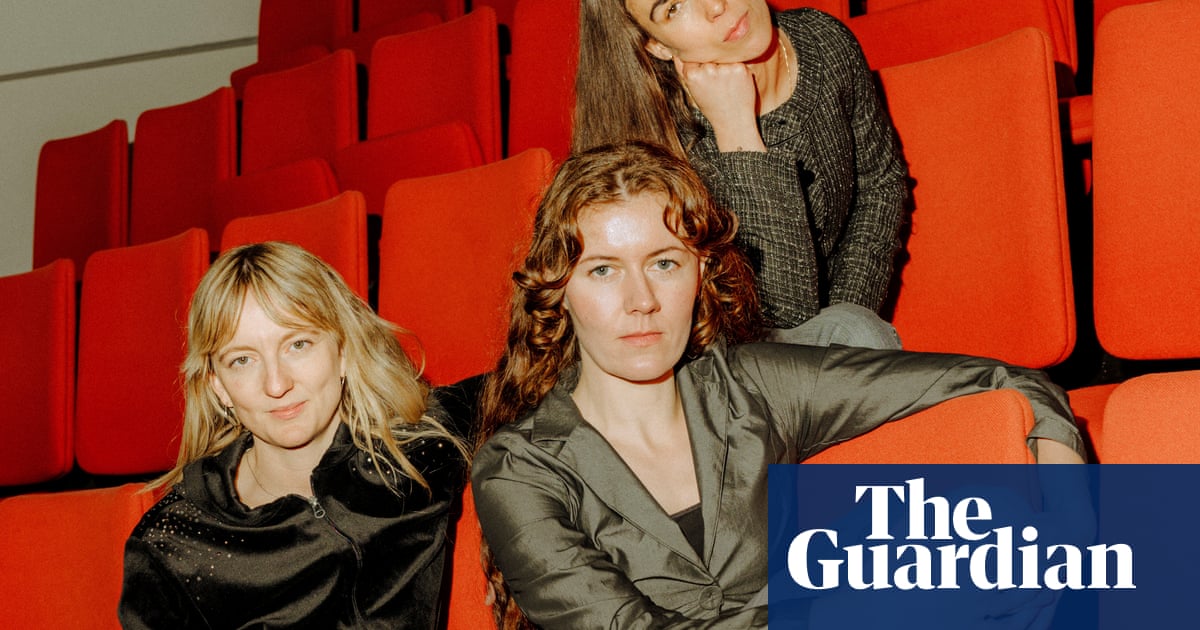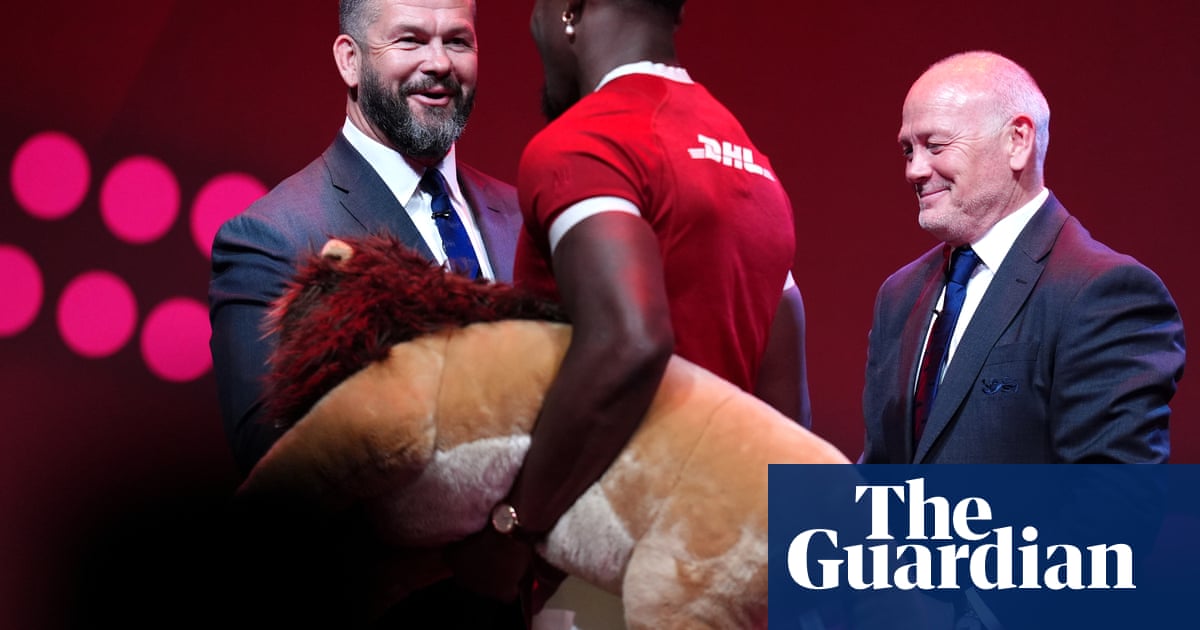A mosh pit may seem out of place in Rockefeller Center, better known for its Christmas tree, rinks and hoards of tourists. But a British record store chain wants to change that.
Rough Trade is tripling the size of its site at the major shopping center this spring, expanding its downstairs to create space for more vinyls, merchandise and events with artists.
Like its stores in the UK, Rough Trade typically teams up with artists around the release of a new album, hosting small concerts for those who purchase an LP from the store.
The expanded New York store will take over a space that was once a chain stationary store. The site will include a built-in stage, and enough room to accommodate 300 people – over three times the number who can fit in the current store.

“The fact that our in-store [shows] are all-ages, and admission is the price of the LP – it provides this egalitarian, civic service in a way,” said Stephen Godfroy, co-owner of Rough Trade. “It gives everybody that chance, that accessibility to meet their music heroes.”
Rough Trade’s American outpost originally opened in 2013, in a 15,000 sq ft (1,390 sq metre) Williamsburg warehouse. Though the store had more space and was in a neighborhood with a more established counter-culture reputation (an oxymoron of sorts), Godfroy said the store felt isolated. Sales have doubled since the store moved to Rockefeller Center.
“It’s not just that the area is busy; it’s relatively easy to get to for a lot of people,” Godfroy said. “We want to reach as broad an audience as possible, provide the biggest platform that we possibly can for the artists that we represent.”
On a recent winter afternoon, where nearby stores played Top 40 pop music, Rough Trade was playing the dissonant bagpipes and celestial sounds of the avant-garde artist Laurie Anderson over its speakers. On display were new albums from indie artists The Weather Station and zzzahara, among others.
For Godfroy, a point of pride is that Rough Trade defies the reputation of its location. It hosts a free festival in the Rockefeller Plaza on Record Store Day every April dedicated to indie artists and DJs.
And while the store has hosted performances by major artists like Green Day and Charli scs, it also spotlights underground artists with passionate fan bases. Godfroy lovingly recalls a performance from the hardcore punk band Incendiary, where fans formed a mosh pit inside the store, crowd surfing each other and jumping on the store counters during the show.

Rough Trade revels in challenging the perception of locals that midtown Manhattan is a buttoned-up, touristy part of New York to avoid. “There’s kind of a mischievous, rebellious glee to doing that,” Godfroy said.
The expansion comes despite the much-proclaimed death of brick-and-mortar outlets – especially music stores. It’s been nearly two decades since Tower Records, the last of the American music store chains, closed all its locations. But even as many people get their music through digital streaming, some are looking for deeper ways to connect to music – an experience, Godfroy says, record stores are poised to offer.
The environment for independent record stores has also gotten harder in recent years, however, as major labels – having seen the growth in vinyl sales – have started to sell LPs directly to consumers. For record stores, this means their suppliers are sometimes also their competitors by holding record presales, or selling exclusive limited editions.
Godfroy argues that record stores are essential to the lifeblood of the music industry, serving as a physical hub for superfans that are looking to connect with artists and other listeners.
“The counter isn’t just this point of transaction,” he said. “It’s a sharing of passion, and it’s a very symbiotic between our customers and our staff. We get recommended [music] by our customers as much as we recommend to our customers.
“It isn’t the most lucrative retail sector … But it’s nevertheless immensely satisfying, for ourselves as the business, and for our staff, to be, if you like, sharing that joy.”

 3 months ago
55
3 months ago
55













































